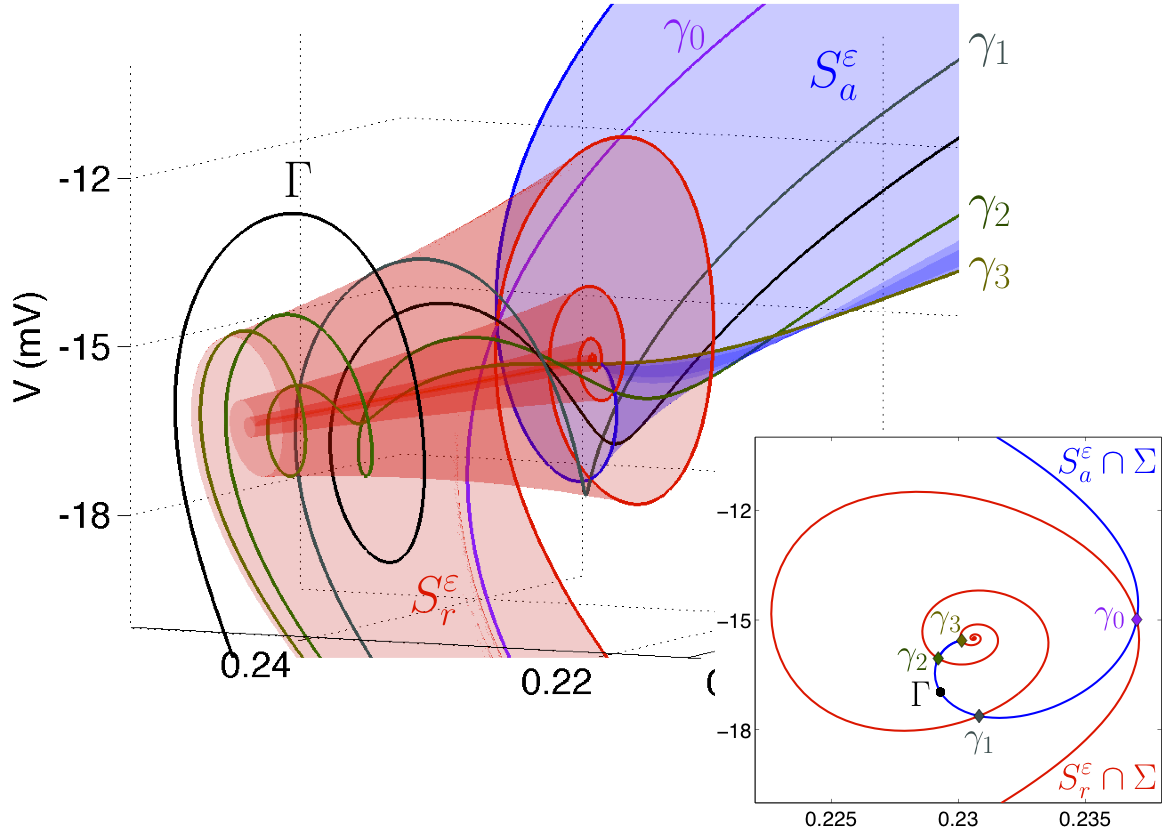Research Theme
I am interested in the complex rhythms that arise in biological systems, and the mathematical problems that they generate. My research focuses on the development, implementation, and application of the theory of multi-scale dynamics to biological rhythms, including neural and cardiac signalling, and chemical oscillations. My research combines theoretical, numerical, and experimental methods.
- Theoretical: nonlinear dynamics, geometric singular perturbation theory, canard theory, bifurcation theory.
- Numerical: numerical continuation, invariant manifolds.
- Experimental: dynamic clamp (an experimental procedure that combines mathematical and electrophysiological techniques).


From data to modeling to analysis.
Current Interests
Slow/fast biological rhythms
Slow/fast rhythms are ubiquitous in nature. Rhythms I am currently interested in include the spiking/bursting activity of nerve and endocrine cells. The aim is to predict and control such behaviour in the interest of guiding experimental design.
Canard theory & its applications
Canard theory is a powerful mathematical framework that studies special solutions of slow/fast systems that delimit different dynamic regimes (in phase and parameter space). The identification, classification, and analysis of canard solutions is a rapidly growing area with significant and relevant applications.
Three time-scale systems
Geometric singular perturbation theory and canard theory are formulated for 2-timescale systems. Many biological phenomena evolve over more than 2-timescales. Results from the 2-timescale theory tend to break down in the 3-timescale context, and a proper theory needs to be developed.
Collaborators
- Richard Bertram (Florida State University)
- Joel Tabak (University of Exeter)
- Mathieu Desroches, Albert Granados, Martin Krupa (INRIA)
- Alex Gelastopoulos, Nancy Kopell and Yujia Zhou (Boston University)
- Tasso Kaper (Boston University)
- Ben Letson, Jonathan Rubin (University of Pittsburgh)
- Martin Wechselberger (University of Sydney)